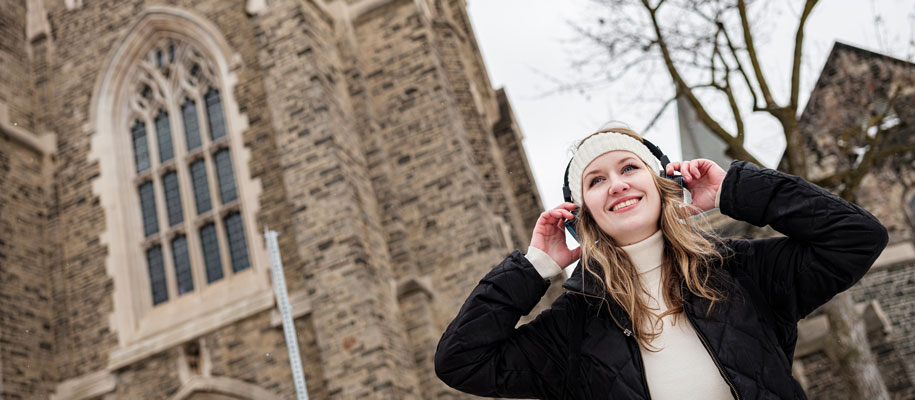As a non-religious person, I never saw myself attending a religious college. I was worried I would be encouraged to convert or that I wouldn’t fit in with other students who were all members of something I wasn’t. I planned to attend a secular school—so you can imagine how surprised I am to be studying at a Jesuit university. I didn’t initially choose it because of its religious values but because of the other benefits it offered; the fact that it was religious fell somewhere between neutral and negative. But now that I’ve been here for a semester, I’ve come to appreciate the more religious aspects of my school just as much as the more secular ones. I’ve found there are many benefits of attending a religious school, even—and especially—if you aren’t particularly religious. Here are my top four to consider.
1. Learning opportunities
In the past, I’d never gone out of my way to learn about religion. The only time we talked about it in public school was when it was relevant to other subjects we were learning about. Because of this, I knew only the facts I was raised on. That changed when I got to college and had to fulfill religion credits as part of my school’s core curriculum. Being required to take classes about different religions will force you to step out of your educational comfort zone. It’s an opportunity to learn more about something you may be unfamiliar with and grow because of it—and there’s so much more to learn about the subject beyond your school’s affiliation. I now have more knowledge about the many religions and practices of the world, and I’m all the better for it.
2. Interdisciplinary studies
Knowledge of different religions is not just limited to the field of religious studies. The information I learned in my religion classes has also enhanced my understanding of other subjects. In history, I have more context for religion-related events. I can recognize major religious figures and understand the causes of events in a deeper way than I could before learning about that religion. In English, I can compare religious writing to secular writing and learn from them both. I’ve even found ideas for my own creative projects from subjects we’ve covered in class. In Philosophy, I can better understand the different ways philosophers deal with religious issues, such as the existence of God, and apply them to my own personal philosophies. As you can see, studying religion provides a powerful lens through which you can understand other subjects and interests in a deeper, more complex way.
Related: Studying Faith and Belief in College: Theology and Religious Studies Majors
3. Morals and values
The benefits of attending a religious school aren’t just limited to its curriculum. Many religious colleges and universities are based around their own set of moral values; mine, for instance, emphasizes Jesuit ideals like cura personalis (“care for the individual person”) and magis (“more”—meaning striving for excellence). While strictly adhering to your school’s set of values is very much optional, I’ve found that their inclusion has been very beneficial so far. It’s nice to know that your school has specific morals since you then know they will do their best to take care of you. College can be extremely stressful, and having an actual support system built into the very values of my institution has been phenomenal. Even if you don’t practice your school’s religion, these values can help you grow as a student. For example, the value of caring for the whole person has helped me become more well-rounded. Another one of my favorites is how my school presents education as not just a way to further your self-interests but also help others. In other words, it’s not just what our education can do for us but what we can do for others with our education.
4. New perspectives
My school enrolls people of many different religions and backgrounds, so my initial worry about not belonging was totally unfounded. Talking to people with perspectives different from your own can be an incredible experience, as it broadens your view of the world and forces you to re-evaluate your old ideas. And while you can find diversity on a lot of college campuses, I think it’s much easier to talk about these differences at a specifically religious one. When religion is one of the main aspects of your school, it opens a lot of conversation topics that might otherwise be uncomfortable or uncommon to broach in other settings. Not only will this help you grow, but it can also help you practice talking about religion. Having experience talking about what is a deeply important subject for so many people can be extremely beneficial in both college and life.
Related: What Non-Religious Students Need to Know About Religious Colleges
Overall, my fears about attending a religious college have yet to materialize. Attending a religious institution hasn’t been a negative experience but an overall positive and wonderful one so far. It has helped me grow as an individual far more than I would have if I had stayed in my comfort zone. If you’re like me and are worried about potentially attending a college just because it’s religious, don’t be. It could be a great place for you and a great opportunity too.
Inspired to add some religious universities to your list? Check out our featured Catholic colleges as well as our featured Christian schools to explore great options and start making connections!






